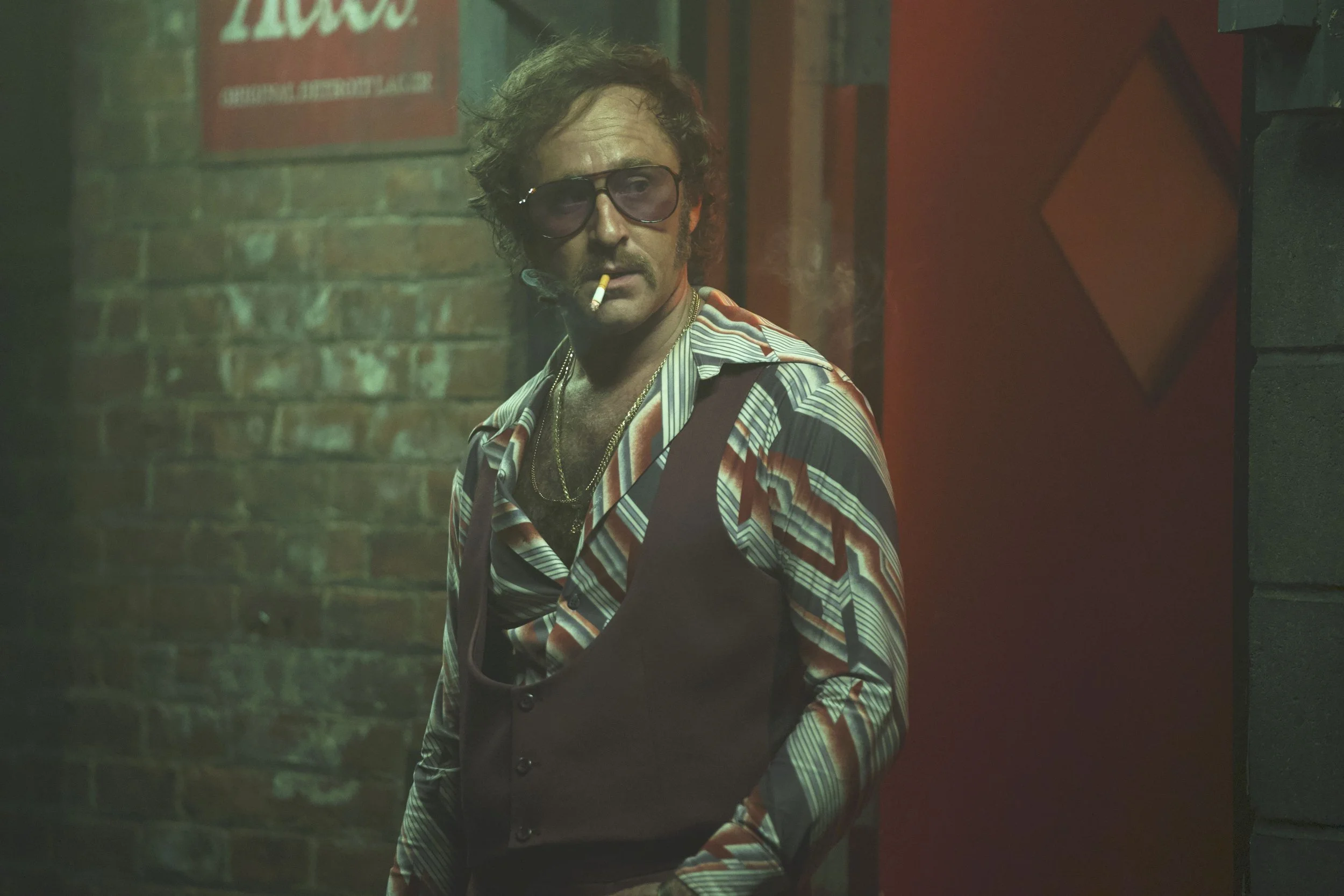Motor City Review: A Revenge Tale in Need of More Drive [TIFF 25]
Potsy Ponciroli is quickly becoming a director that attracts a stellar cast for every project in which he’s in the driver’s seat. His last two films, ‘Old Henry’ and ‘Greedy People’, while perhaps earning mixed reviews also earned actors such as Joseph Gordon Levitt, Himesh Patel, Lily James and character icon Tim Blake Nelson riding shotgun to Potsy’s vision.
That’s predominately because Ponciroli is an actor’s director, he knows how to foster the kind of performance he wants to get out of his actors, whether it’s the pained laconic Nelson in Old Henry, or the in your face comedic eclat of Levitt in Greedy People. Yet ‘Motor City’, Ponciroli’s entry into the Toronto International Film Festival for the festival’s 50th anniversary, presents an interesting dynamic, and some new challenges for this friend-of-the-actor.
There is almost zero dialogue.
It has become almost a fad at this point in filmmaking. How many recent projects, such as ‘Silent Night’, ‘No One Will Save You’, or perhaps the most obvious answer in ‘A Quiet Place’ and its series of films, have next to no dialogue? The thing is, having a film that depends on silence, is just like a film that depends on dialogue - you have to ensure you’re using it for the right purpose, and not simply using it because it’s a gimmick.
Motor City follows Miller (Alan Ritchson), sporting Ritchson’s massive physique and a slick flowing wig as he survives 1970’s Detroit. One dark motor city night, he comes across Sophia (Sharlene Woodley), who seems like all the right kind of trouble, and the two share a smoke. Suddenly local mobster, Reynolds (Ben Foster), comes out and berates Sophia, as the two were clearly an item. Loverboy Miller steps in, and both he and Sophia end up feeling Reynold’s wrath. For almost the remainder of the film, the real struggle is then between Miller and Reynolds who endlessly try to one-up each other no matter the cost,all in the name of love, and the Motor City explodes with frame jobs, criminal enterprises, dirty cops and good old-fashioned shoot-em-up violence.
It’s a simple enough concept, certainly, so clearly writer Chad St. John and Ponciroli wanted, nay needed to do something different to separate Motor City from the rest of the revenge-film pack. To their credit, it worked. Creating an entire story with only four lines of dialogue is difficult to begin with, but an action film missing its witty one-liners or the rejoinders of an unredeemable villain certainly seems almost impossible.
St. John and Ponciroli prove that this genre can best avoid the specific conventions of dialogue, perhaps better than most others. It proves that Charles Bronson in ‘Death Wish’ or Keanu Reeves in ‘John Wick’ was no terse fluke. However, dialogue is not always needed to drive the story. What is needed, and what this writer felt was desperately missing, is drive itself. The ‘script’, as it were, is far too basic for this format, and so often, the film can feel borderline passionless, despite Ponciroli allowing his actors the room to breathe and be larger than life when the circumstances call for it.
That ‘bigness’ comes through quite often, and Ponciroli’s background in directing music videos was certainly a useful trade to have under his belt, as several of the more poignant moments are broken down using the conveyance of slow motion with a memorable era-appropriate song doing most of the heavy lifting. Unfortunately, those moments are the only heavy lifting to be done. The rest of the film, in fact the story itself, is quite light. This genre will likely never win best original screenplay, as often revenge stories of this nature don’t offer much in terms of depth. That’s not to say they can’t, it’s just the norm.
Yet, with Ponciroli attracting an all star cast, as character-driven directors tend to do, the one true strength of ‘Motor City’, are in fact, the performances, as one would expect. One actor this writer never tires of is Pablo Schreiber, who can play a grungy, immoral meathead perhaps better than most in the Hollywood system. There’s something about that face, or at least the way Schreiber uses it that makes his character, Savick (one of the aforementioned dirty cops) infinitely hateable. Ben Foster, an actor who is never afraid to go big, has some tremendous range within the film. He could have easily chosen to chew the scenery portraying Reynolds as a gangster befit a Dick Tracy comic, but he balances his red hot rage with quite a few moments of tenderness, pain, and subtlety.
But with the format of the film inhibiting some of the real development of the characters, the constraints of a revenge-action film and the larger than life take the actors often portrayed, so many of the characters bordered on caricature. There wasn’t the same kind of range that Foster was able to infuse into Reynolds and so they simply became generic devices. Ritchson, as imposing as he was on screen, was merely the muscle, the one to cheer for. Not because we wanted to necessarily, not because we connected with him, but because he was simply the main character. Woodley as well unfortunately didn’t create a character that would grab the audience’s attention or sympathy, she’s merely an inciting incident to create the rivalry between Reynolds and Miller.
Essentially, Ponciroli, while still proving he is an actor’s director, and allowing his actors to swing away, doesn’t take any wild swings himself, perhaps other than the premise. Really it comes down to this - if this film had dialogue, would it have been anything special? Would it be the next John Wick or Death Wish? Arguably, no. It would likely be even less memorable, and in the end, wouldn’t truly be worth talking about.
Ironic.



